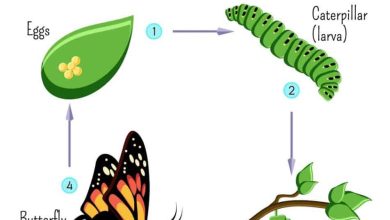Cat Diarrhea: 5 Treatment Options You Should Try | PetMD
what is gastritis in cats?
gastritis is defined as inflammation of the stomach lining. gastritis in cats can be acute (brief and immediate or lasting less than a week) or chronic (lasting more than a week or two).
Acute gastritis is often a presumptive diagnosis and the underlying cause often goes undiagnosed because symptoms resolve with minimal or no treatment. signs of chronic gastritis can vary in frequency and type and are characterized by inflammatory cells determined through a biopsy performed by a veterinarian.
gastritis can develop in cats of any breed, age, or sex. younger cats are more prone to ingesting the wrong items or different foods, making them more prone to developing acute gastritis.
Acute gastritis is often self-limited or responsive to mild therapy. chronic gastritis can be very serious or even fatal in some cases.
symptoms of gastritis in cats
symptoms of gastritis in cats may include:
-
vomiting (with or without blood)
-
decreased/absent appetite
-
abdominal pain
-
sleep
-
dehydration
-
melena (dark tarry stools)
-
diarrhea and/or weight loss
causes of gastritis in cats
gastritis can be a primary or secondary condition. this means that it can occur on its own or be secondary to other systemic diseases, such as liver disease, kidney disease, diabetes mellitus, or neurological disease.
The most common cause of acute gastritis in cats is dietary indiscretion (eating food or other items that are new and cause inflammation of the stomach lining). acute gastritis can also be caused by:
-
reactions to medications
-
ingestion of toxins, including plants, spoiled or toxic food, antifreeze, and cleaning agents
-
infections (bacterial, viral, or parasitic)
-
overeating
-
stress
-
ingestion of foreign objects
chronic gastritis can be caused by:
-
pancreatitis (inflammation of the pancreas)
-
chronic foreign objects in the stomach causing partial blockage of outflow
-
tumors of the gastrointestinal tract (benign or cancerous)
-
inflammatory bowel disease (IBD)
-
stomach ulcers
-
other systemic diseases (such as liver disease, kidney disease, diabetes mellitus, or neurological disease)
how vets diagnose gastritis in cats
Your veterinarian should perform a complete history, including any known dietary indiscretions, toxin ingestion, other illnesses or stressful situations, and a physical exam when gastritis is suspected. diagnostic tests become more aggressive as clinical signs become more prominent and are based on the findings of other, less invasive tests.
diagnostic tests your vet may perform include:
-
blood work: A complete blood count (cbc) and electrolyte chemistry profile help to assess hydration status and any underlying systemic disease.
-
urinalysis: Testing your cat’s urine helps assess kidney function and bladder health.
-
fecal analysis: Your cat’s stool will be tested to diagnose any intestinal parasites that may be causing the gastritis.
-
Abdominal X-rays: X-rays help find masses, fluid in the abdomen, foreign objects, and/or obstruction of the GI tract.
-
Contrast x-rays: These are used when an abdominal ultrasound is not an option. A contrast agent is introduced into the GI tract and monitored via a series of x-rays to see how it empties from the body. this test can illuminate masses, obstructions, and/or motility problems in the gastrointestinal tract.
-
Abdominal ultrasound: Ultrasound can help evaluate all the organs in the abdomen for possible disease. this modality is more specific when it comes to evaluating the layer and thickness of the intestinal wall, and to detect possible obstructions.
-
biopsy of the gastrointestinal tract: A biopsy is the only definitive way to diagnose the cause of the underlying inflammation. your vet may recommend an upper GI endoscopic partial-thickness biopsy or surgical full-thickness biopsy. surgery or endoscopy can often be used to help remove foreign objects from the gastrointestinal tract, if these are the cause of gastritis.
treatment of gastritis in cats
The treatment of gastritis depends on the specific cause and the severity of the clinical signs. many cases of acute gastritis are self-limited, meaning they may resolve without treatment.
Non-medical therapy for gastritis includes withholding any food for 8 to 12 hours after the last episode of vomiting to allow the stomach to settle. small amounts of water are usually offered for the first 12 to 24 hours, followed by about 8 to 12 hours without food and small amounts of a bland diet (which is easy to digest and low in fat) several times throughout the day .
it is recommended to gradually increase the amount of food over a day or two, then slowly return to the original diet over a period of three to five days to avoid further stomach upset.
If vomiting resumes or your cat continues to vomit during non-medical therapy, you should schedule a visit to the vet. if your cat is unable to keep water down and continues to vomit only when drinking, contact your vet immediately.
medical therapy for gastritis in cats includes:
-
medication for vomiting, such as cerenia, ondansetron, or dolesetron
-
agents that promote motility (unless foreign object obstruction is suspected), such as metoclopramide
-
acid reducers, such as pantoprazole, famotidine, or ranitidine
-
fluid therapy (either subcutaneous for mild dehydration or intravenous for moderate to severe dehydration)
cases of chronic gastritis caused by chronic inflammation (ibd or cancers) may benefit from chronic use of steroids, chemotherapeutic agents, and/or immunosuppressive drugs.
Your vet will help formulate a plan with you based on your cat’s diagnosis and your long-term goals.
recovery and management of gastritis in cats
Most cats with acute gastritis will get better on their own without medical intervention. other cases of more severe acute gastritis will require medical treatment, with a good prognosis depending on the underlying cause. certain blockages or toxins can be fatal if left untreated. for example, ingestion of antifreeze is fatal if not diagnosed and treated within hours of ingestion.
The prognosis of chronic gastritis also depends on the underlying cause. often, changes to a new protein diet (a new protein never before introduced to the pet) or a hydrolyzed protein diet and probiotic therapy are recommended throughout the cat’s life.
Stress should be kept to a minimum at home. your vet can determine the sources of stress, as well as holistic or medical therapies. Frequent vet visits (every one to three months) are recommended for cats taking immunosuppressive medications, including steroids and chemotherapy. routine abdominal imaging and blood work may be required.
Acute gastritis can recur if your cat continues to eat something inappropriate, so it’s important to eliminate these items, such as strings, toxins and plants, and avoid sudden changes in the diet. unfortunately, even with treatment, flare-ups are common in cats with chronic gastritis.
gastritis in cats frequently asked questions
-
-
-
-



